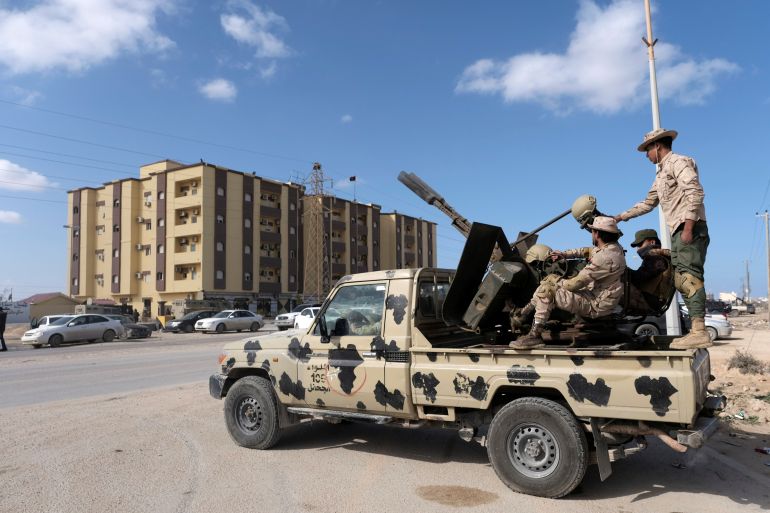UN’s Libya envoy resigns citing no hope for political progress
Abdoulaye Bathily says ‘lack of political will and good faith’ on the part of Libyan leaders are making UN governance efforts in Libya futile.

The UN’s special envoy for Libya says he is his resigning as the world body cannot successfully support the country’s political transition when its leaders put their own interests above finding a solution.
“I tendered my resignation to the secretary-general,” Senegalese diplomat Abdoulaye Bathily told reporters on Tuesday after briefing the Security Council on the situation in the North African country.
Keep reading
list of 3 itemsUnder new general, Russia’s Wagner makes deeper inroads into Libya
Relief as Italian court says rescued refugees cannot be sent back to Libya
The UN support mission in Libya (UNSMIL) “made a lot of efforts under my leadership over the last 18 months”, but the situation has deteriorated, Bathily said, condemning a “lack of political will and good faith” by Libyan leaders.
“Under the circumstances, there is no way the UN can operate successfully,” he concluded. “There is no room for a solution in the future.”
Bathily also announced the delay of a national reconciliation conference, originally scheduled for April 28. A new date has not been set.
Libya is still riven by conflict and civil war more than a decade after the 2011 NATO-backed overthrow of longtime ruler Muammar Gaddafi. The country is divided between a UN-recognised government based in Tripoli and a rival administration in the country’s east.
Although relative calm has returned to the oil-rich country in the past four years, clashes periodically occur between armed groups.
“The selfish resolve of current leaders to maintain the status quo through delaying tactics and manoeuvres at the expense of the Libyan people must stop,” Bathily said.
Bathily had been named to his position in September 2022, after the abrupt resignation of his predecessor Jan Kubis in November of the year prior.
Kubis, of Slovakia, quit less than a year after taking on the role, giving no precise reason for the decision.
Libyans have not voted in presidential or parliamentary elections since 2014, when a contested vote led to divided rule.
Elections have been postponed multiple times as competing authorities disagree over amendments to constitutional rules.
UNSMIL was appointed by the UN Security Council in 2011 as a political mission to help facilitate a Libyan-owned political process that would result in national and parliamentary elections.